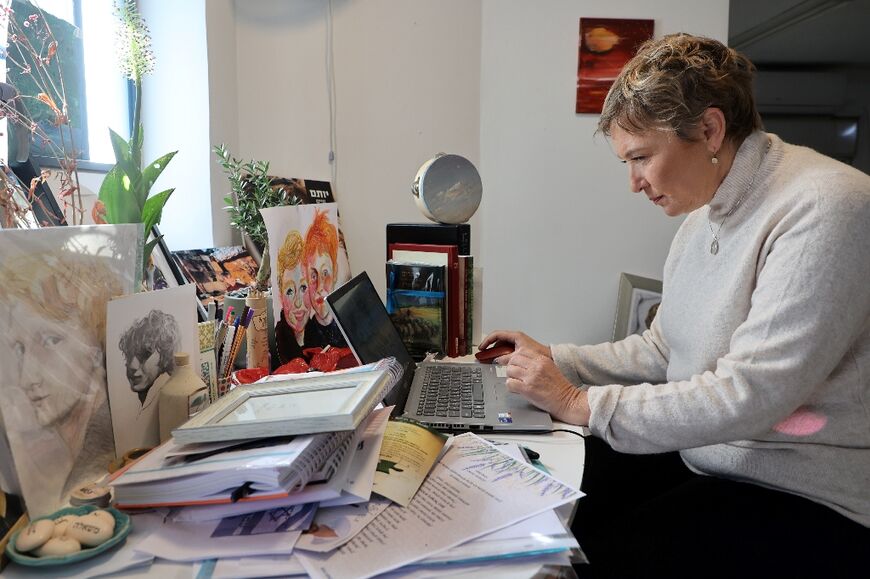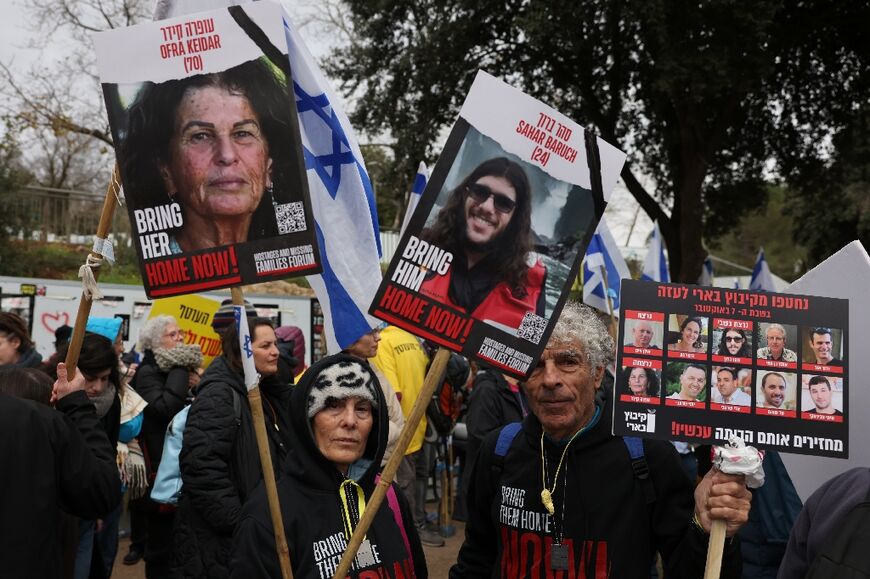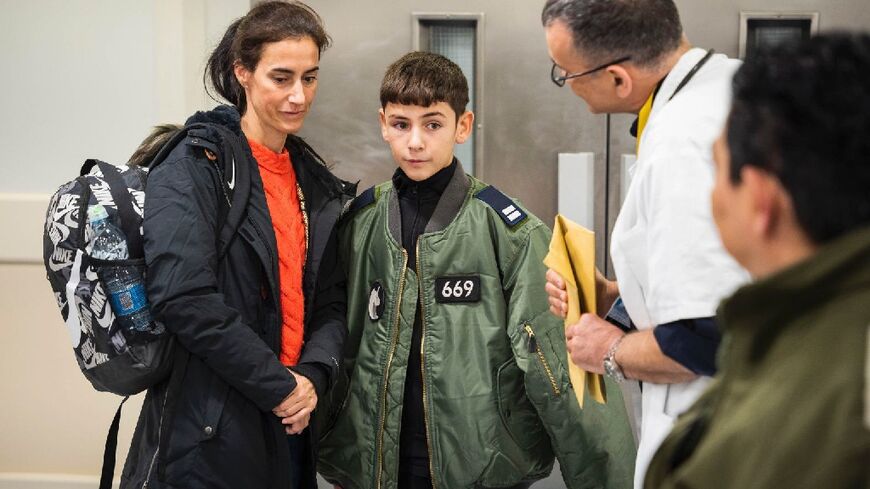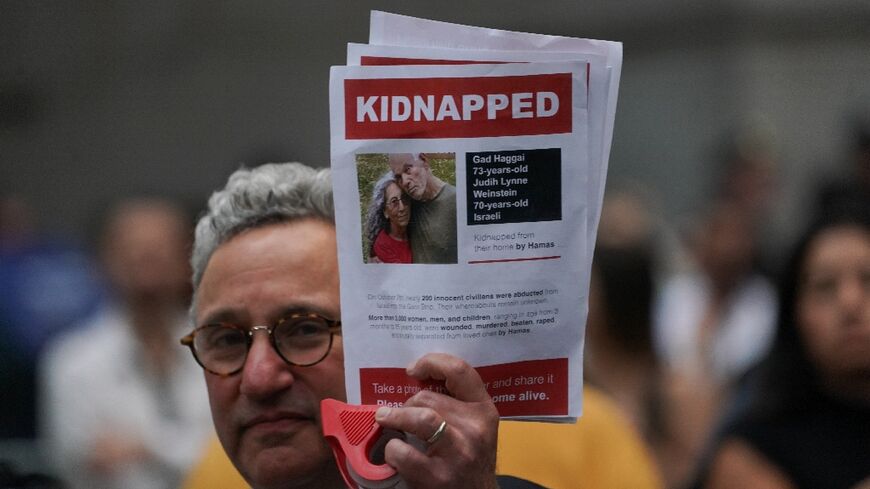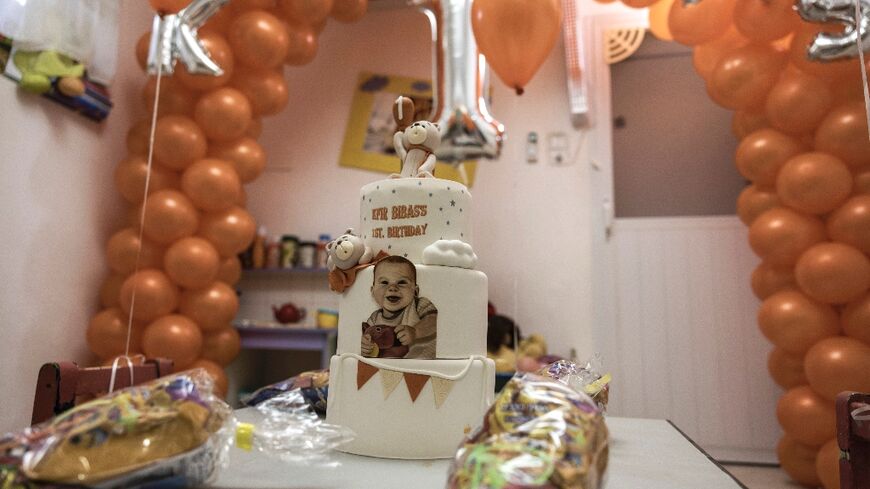Israeli mother feels no anger at troops who killed hostage son
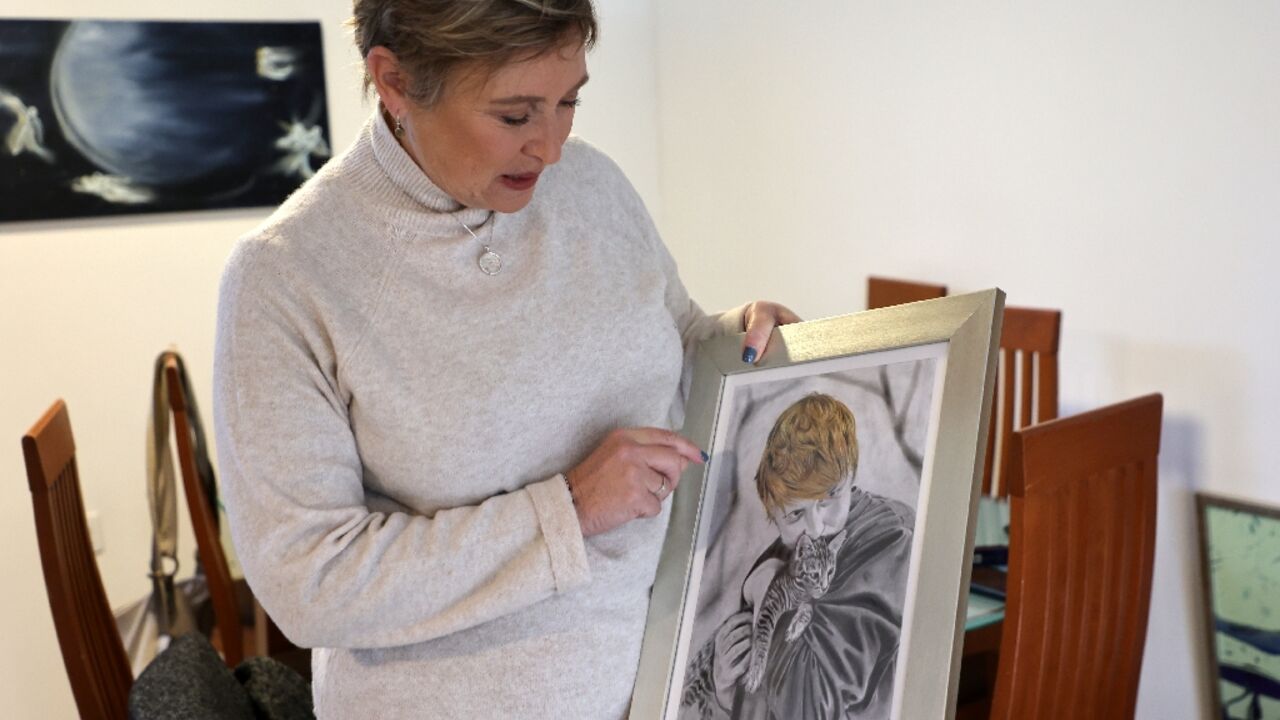
Yotam Haim was gunned down in Gaza by Israeli soldiers who failed to realise he had escaped from his Hamas captors -- yet his mother refuses to criticise the army.
Iris Haim, 57, feels the same way now as she did a month ago, when she sent an extraordinary message to the army unit involved in her son's killing.
"I have no anger, I understand the difficult situation you were in, I love and admire you," she wrote just after the killing in a message that went viral after a soldier posted it on social media.
Haim later read it out in public, all of which made her a hero to many Israelis.
"I'm not into accusations and retroactive interrogations," she told AFP this week.
"I can't bring Yotam back, but I can choose to see things in a positive way."
Yotam, 28, and two other hostages were killed by Israeli soldiers who mistakenly thought them to be a threat, the army said after an investigation into the shooting.
The trio had managed to give their captors the slip on December 10. After five days wandering in a Gaza neighbourhood, they came across Israeli soldiers and called out in Hebrew.
The squad, the army said, believed it was a Hamas ploy and fired on them.
The investigation revealed the three were shirtless and one even carried a white flag when they were shot.
Yotam's mother, a nurse, saw her life turn upside down on October 7 when he was kidnapped from kibbutz Kfar Aza by Hamas fighters when they launched a sweeping attack on Israel.
About 50 of the kibbutz's residents were among some 1,140 people who died in the attacks, according to an AFP tally based on the latest official Israeli data.
Since then Israel has launched a blistering air, land and sea offensive in Gaza that has so far killed 24,285 people, 70 percent of them women, children and adolescents, according to the Hamas-run authorities.
- 'No tears' -
Yotam was among around 250 hostages dragged to Gaza by the Palestinian militants.
Iris Haim quickly became a prominent face of the campaign to get the hostages freed.
The families of the captives have formed a powerful campaign group, pushing the government to keep the fate of their loved ones at the top of the agenda.
But they are a disparate group with differing views on how to achieve the goal.
Right from the start, Haim was explicit that she would not join some of the other families in criticising the authorities.
She said her message was clear: "That I have a country that works... and I'm not going to go against it now."
Haim said the lives of soldiers fighting in the Gaza Strip were hugely important to her. At least 189 soldiers have died in the fighting so far, according to the army.
And instead she focused on telling the story of her son "with a smile and without anger".
Yet few would have blamed her for sinking into bitterness after December 15, the day her son was shot dead.
- 'Don't forget him' -
Haim, who specialises in caring for the terminally ill, sees no reason to dwell on the tragedy.
She would prefer to focus on remembering her son and making something positive from the situation.
"I really want Yotam to be remembered and commemorate his heroism. I don't want him to be forgotten in a month or a year," she said.
Portraits of the red-haired young man are everywhere in the temporary apartment where she has lived since her village was evacuated in the aftermath of the October 7 attacks.
Yotam was a musician, a sportsman and ultimately a hero, she said, but also someone who suffered from anxiety and psychological problems.
"He had to face hardships that he overcame on his own," she said, adding that this could inspire other people.
"He took his life into his own hands and he died free by taking risks."


